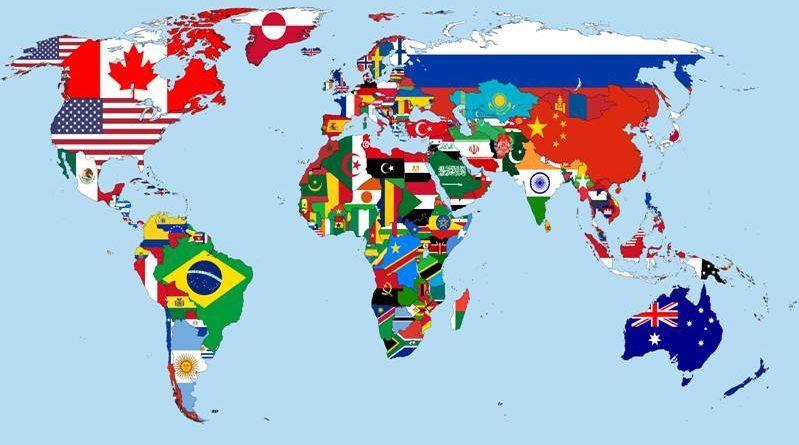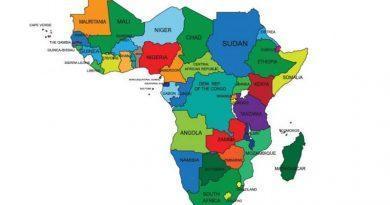France, Italy and Brazil are the Most Complex Countries to Operate a Business: Nigeria not ranked.
The Global Business Complexity Index (GBCI), a prominent supplier of compliance and administrative services, has just released its tenth edition.
The extensive analysis examines 78 jurisdictions, which together represent 95% of net global FDI flows and 92% of the world’s total GDP. It assesses close to 300 continuously monitored indicators, providing information on crucial corporate operations concerning laws, compliance, accounting practices, tax laws, human resources (HR) and payroll procedures.
After finishing second the previous two years, France tops the index this year. It is followed by Italy (8th place), Greece (2nd place vs. 6th in 2022), and Turkey (6th vs. 7th in 2022). Nigeria is not included in the list of 78 African countries ranked.
In Africa only two countries made it on the list, namely, Egypt on number 30 and South Africa on number 51. China is ranked 15, Germany 25, Russia 36, USA is 68 while the UK is ranked number 72
Due to ongoing legal and economic issues, the business complexity in these EMEA nations significantly changed during the course of the year. The complicated labor rules in France present challenges for foreign enterprises. Due to “the great resignation,” Italian employers are 1 more to keep their workers.
The most straightforward European business jurisdictions include Denmark, the Netherlands, the United Kingdom, Jersey, and Malta. Denmark, which is ranked as the second-least complex country in the world due to its political, social, and economic stability, is simple in terms of the incorporation process for enterprises. Malta, a recent addition to the list of the ten nations with the least amount of red tape, has a liberal corporate tax rate and refunding mechanism.
“Our Global Business Complexity Index indicates how conducting business across some European countries can be challenging, especially with the impacts of the war which are apparent throughout EU,” said Frank Welman, Head of Europe at TMF Group. The neighboring nations also experience the geopolitical and economic effects, which increases global inflation. As a result, some nations are reconsidering their strategy by streamlining rules in an effort to keep investors for the long term, while others are continuing to take a more demanding stance, which affects their positions in rankings. We wish to see more nations spend money on experts and partners who can guide them through the constantly changing norms and procedures, particularly when conducting cross-border business.
The research highlights key trends that shape the global business environment and regulatory landscape.
Turbulence on the global and economic fronts
The analysis shows how the corporations’ expansion plans are being impacted by geopolitical issues, as well as how they are being impacted by global economic factors including inflation, staff turnover, and the conflict in Ukraine.
Since the commencement of the conflict in Ukraine, 63% of jurisdictions have forecasted supply chain disruptions, higher energy prices, and trade restrictions. For instance, the decline in German imports has boosted inflation worldwide.
According to analysis, one of the causes of the loss in trust in future economic stability, which went from 82% in 2020 to 71% in 2023, is this widespread inflation. Similarly, 98% of EMEA governments report that workers are requesting greater compensation packages, increasing administrative burdens on firms.
global challenges to compliance
The paper demonstrates how business complexity is increased by demanding worldwide compliance standards including ultimate beneficial owners (UBO), know your customer (KYC), and anti-money laundering (AML).
As countries like the UK and Hungary imposed sanctions against Russian companies and individuals, KYC checks are becoming more thorough and precise, adding complexity for companies with a Russian ownership structure.
However, it has been discovered that 14% of jurisdictions follow reversed legislation. For instance, various pieces of legislation that are normally related to taxes were introduced in the UK before being changed. Although advantageous, this backtracking can complicate matters for organizations as they try to keep up with contradicting government orders.
ESG considerations: environmental, social, and governance
Companies must now abide by at least one ESG requirement in the majority of jurisdictions where environmental, social, and governance criteria are becoming more important. Compared to North American jurisdictions, they are higher in EMEA.
While public and listed corporations are primarily responsible for reporting to and adhering to ESG regulations, Switzerland has recently passed new law requiring FINMA-regulated companies of public interest to publish public yearly ESG reports.
In terms of environmental sustainability and diversity, France was an early adoption of such laws and sets the bar for other European nations when it comes to requiring reporting on diversity, including the gender pay gap and disabilities.
Top and bottom ten (1= most complex, 77= least complex)
1 France
2 Greece
3 Brazil
4 Mexico
5 Colombia
6 Turkey
7 Peru
8 Italy
9 Bolivia
10 Argentina
69 Malta
70 Jersey
71 New Zealand
72 United Kingdom
73 British Virgin Islands
74 Hong Kong
75 The Netherlands
76 Curaçao
77 Denmark
78 Cayman Islands




